Scientific Program by Session Type
President's Program (President's Address; President's Symposium)
AAI President’s Address
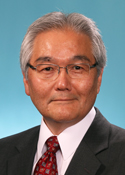 Friday, May 4, 5:00 PM, Ballroom D
Friday, May 4, 5:00 PM, Ballroom D
Wayne M. Yokoyama
Washington Univ. Sch. of Med., AAI President
50 years (well, almost!) in immunology
Emil R. Unanue, Washington Univ. Sch. of Med.
Introduction
AAI President’s Symposium
Into the Limelight: Natural Killer and Innate Lymphoid Cells
Monday, May 7, 12:30 – 2:30 PM, Ballroom D
Austin Convention Center
Chair:
Wayne M. Yokoyama, Washington Univ. Sch. of Med., AAI President
Speakers:
- David H. Raulet, Univ. of California, Berkeley, NK cell activation and inactivation in the tumor microenvironment
- Katharine C. Hsu, Mem. Sloan Kettering Cancer Ctr., NK cells in the oncology clinic
- Gabrielle T. Belz, Walter and Eliza Hall Inst. of Med. Res., Australia, Teasing apart transcriptional regulation in innate lymphoid cells
- Marco Colonna, Washington Univ. Sch. of Med., Innate lymphoid cell plasticity
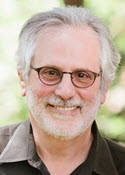
David H. Raulet
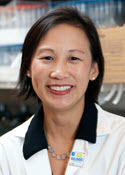
Katharine C. Hsu
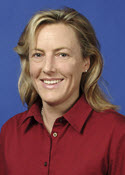
Gabrielle T. Belz
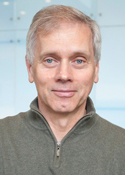
Marco Colonna
Distinguished Lectures
Saturday, May 5, 6:00 PM, Ballroom D
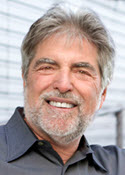
Jeffrey A. Bluestone
Univ. of California, San Francisco
Treg-mediated immune tolerance in health and disease
Sunday, May 6, 6:00 PM, Ballroom D
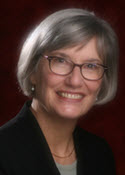
Pamela J. Fink
Univ. of Washington Sch. of Med.
Educating T cells from the cradle through adolescence
Monday, May 7, 6:00 PM, Ballroom D
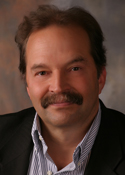
Randolph J. Noelle
Dartmouth Geisel Sch. of Med.
A panoramic VISTA of the immune system
Major Symposia
Saturday, May 5, 8:00 AM – 11:30 AM
Major Symposium A: Transcriptional Control of Immunity: Diverse Regulatory Mechanisms in Gene Regulation
Ballroom D
Chairs:
Amy S. Weinmann, Univ. of Alabama, Birmingham
Boris Reizis, New York Univ. Sch. of Med.
Speakers:
- Amy S. Weinmann, Univ. of Alabama, Birmingham, Role for metabolites in regulating cellular differentiation gene programs
- Boris Reizis, New York Univ. Sch. of Med., Transcriptional control of dendritic cell function in vivo
- Tracy L. Johnson, Univ. of California, Los Angeles, A histone “tail”: coordinating RNA splicing and histone modification—from yeast to macrophages
- Jorge Henao-Mejia, Univ. of Pennsylvania, Regulation of innate immune cells by lncRNAs
- Andrea Schietinger, Mem. Sloan Kettering Cancer Ctr., Molecular mechanisms defining tumor-specific T cell differentiation and dysfunction
- Stephen T. Smale, Univ. of California, Los Angeles, Mechanisms regulating selective transcriptional responses to innate immune stimuli
Major Symposium B: Immune Cells in Tissue Niches
Ballroom EFG
Chairs:
Frederic Geissmann, Mem. Sloan Kettering Cancer Ctr.
Gretchen Diehl, Baylor Col. of Med.
Speakers:
- Shannon J. Turley, Genentech, Stromal niche in cancer immunology and immunotherapy
- Frederic Geissmann, Mem. Sloan Kettering Cancer Ctr., Roles of resident macrophages in brain, bone, and fat tissue homeostasis
- Robyn S. Klein, Washington Univ. Sch. of Med., CNS immunity: new players in neuroprotection
- Jun R. Huh, Harvard Med. Sch., Maternal gut bacteria, immune cells, and neurodevelopmental disorder
- Gretchen Diehl, Baylor Col. of Med., Microbial regulation of intestinal immunity
- Bruno Lemaitre, Global Hlth. Inst., EPFL Lausanne, Switzerland, Regulation of Drosophila hemocyte number and sessility by an adipokine
Sunday, May 6, 8:00 AM – 11:30 AM
Major Symposium C: New Regulatory Concepts from Human Immunology Studies
Ballroom D
Chairs:
Bana Jabri, Univ. of Chicago
Michael J. Lenardo, NIAID, NIH
Speakers:
- Bana Jabri, Univ. of Chicago, Inflammation, tissue resident gamma delta T cells, and the journey of no return
- Michael J. Lenardo, NIAID, NIH, New precision medicine therapies emerge from genomic investigation of diseases of the immune system
- Luis Barreiro, Univ. of Montreal/CHU Sainte-Justine, Canada, Genetic and environmental determinants of interindividual variation in immune responses to infection
- Federica Sallusto, Inst. for Res. in Biomed., USI and ETH Zurich, Switzerland, Lymphocyte diversity: matching specificity and function
- Ramnik J. Xavier, Harvard Univ. and Broad Inst., Human genetics to innate immune pathways
- Maria Grazia Roncarolo, Stanford Sch. of Med., Primary immune regulatory disorders as human models to understand immunological tolerance
Major Symposium D: Gone but not Forgotten: The Impact of Cell Death on the Immune Response
Ballroom EFG
Chairs:
Carla V. Rothlin, Yale Sch. of Med.
Andrew A. Oberst, Univ. of Washington
Speakers:
- Shigekazu Nagata, iFREC, Osaka Univ., Exposure of phospatidylserine on apoptotic cells
- Julie Magarian Blander, Weill Cornell Med., Phagocyte responses to dying cells
- Carla V. Rothlin, Yale Sch. of Med., Death begets a new beginning: recognition of apoptotic cells in the induction of tissue repair
- Ross M. Kedl, Univ. of Colorado Denver Sch. of Med., Lymphatic endothelial cell death as a vehicle for antigen exchange and maintenance of T cell memory
- Andrew A. Oberst, Univ. of Washington, The innate immune response to Zika virus infection of the central nervous system
- Thirumala-Devi Kanneganti, St. Jude Children’s Res. Hosp., Regulation of inflammasome activation and cell death
Monday, May 7, 8:00 AM – 11:30 AM
Major Symposium E: Developing More Effective Cancer Immunotherapies
Ballroom D
Chairs:
Robert D. Schreiber, Washington Univ. Sch. of Med.
Nina Bhardwaj, Icahn Sch. of Med. at Mount Sinai
Speakers:
- James P. Allison, Univ. of Texas MD Anderson Cancer Ctr., Immune checkpoint blockade in cancer therapy: new insights and opportunities, and prospects for cures
- Robert D. Schreiber, Washington Univ. Sch. of Med., Elucidating the fundamental principles of personalized cancer vaccines
- Nina Bhardwaj, Icahn Sch. of Med. at Mt. Sinai, Targeting dendritic cells to modulate antitumor immunity
- Sandra Demaria, Weill Cornell Med., Insights into the mechanisms regulating antigenicity and adjuvanticity of irradiated tumors
- Patrick A. Ott, Dana Farber Cancer Inst., Brigham and Women’s Hosp., and Harvard Med. Sch., A personal neoantigen vaccine in patients with high risk melanoma
- Philip D. Greenberg, Univ. of Washington and Fred Hutchinson Cancer Res. Ctr., Engineering T cell responses to effectively target and then eliminate tumors
Major Symposium F: Immune – Microbe Coevolution
Ballroom EFG
Chairs:
Janelle S. Ayres, Salk Inst.
Lisa Osborne, Univ. of British Columbia, Canada
Speakers:
- Janelle S. Ayres, Salk Inst., Host-microbe interactions: harnessing co-evolution to treat disease
- Nichole R. Klatt, Univ. of Washington, Microbial interactions in HIV infection
- David Wang, Washington Univ. Sch. of Med., Lessons from novel viruses in infection and immunity
- Lisa Osborne, Univ. of British Columbia, Canada, Host-multibiome interactions in intestinal infection and inflammation
- Russell E. Vance, HHMI and Univ. of California, Berkeley, How do inflammasomes detect rapidly evolving pathogens?
Tuesday, May 8, 8:00 AM – 11:30 AM
Major Symposium G: Molecular Basis of B cell Differentiation and Function
Ballroom D
Chairs:
Jennifer L. Gommerman, Univ. of Toronto, Canada
Speakers:
- Troy D. Randall, Univ. of Alabama, Birmingham, Resident memory B cells in the lung
- Christopher Scharer, Emory Univ. Sch. of Med., Cell division-coupled epigenetic regulation of B cell differentiation
- Marion Pepper, Univ. of Washington, Understanding somatically hypermutated IgM memory B cells
- Facundo Batista, Ragon Inst. of MGH, MIT and Harvard, B cell activation induces a switch from canonical to non-canonical autophagy that shapes B cell fate
- Jennifer Anolik, Univ. of Rochester Med. Ctr., B cell roles in bone homeostasis in rheumatoid arthritis
Major Symposium H: Neuroscience of Immunity
Ballroom EFG
Chairs:
Kevin J. Tracey, Feinstein Inst. for Med. Res.
Tajie H. Harris, Univ. of Virginia
Speakers:
- Kevin J. Tracey, Feinstein Inst. for Med. Res., Molecular basis for reflex integration of
immunity - Tajie H. Harris, Univ. of Virginia, Glia-derived signals promote focal protective immunity to CNS infection
- Isaac M. Chiu, Harvard Med. Sch., Nociceptor neuron regulation of innate immunity and host defense
- Paul Kubes, Univ. of Calgary, Canada, Using imaging to study the neural – immune interplay
- Betty Diamond, Feinstein Inst. for Med. Res., Antibodies, microglial activation, and cognitive impairments
- Diana Bautista, Univ. of California, Berkeley, Neuro-immune cell interactions that drive atopic dermatitis
Award Lectures and Presentations
Annually recognizing immunologists of extraordinary professional achievement and promise, the AAI Career Awards include:
- AAI Lifetime Achievement Award
- AAI Distinguished Service Award
- AAI Excellence in Mentoring Award
- AAI-Thermo Fisher Meritorious Career Award
- AAI-BioLegend Herzenberg Award
- AAI-Steinman Award for Human Immunology Research
- AAI-BD Biosciences Investigator Award
AAI Lifetime Achievement Award Presentation
Friday, May 4, 5:00 PM, Ballroom D
Chair:
Wayne M. Yokoyama, Washington Univ. Sch. of Med., AAI President
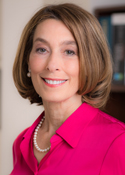 Award Recipient:
Award Recipient:
Laurie H. Glimcher, Dana-Farber Cancer Inst., Harvard Med. Sch.
AAI President Wayne M. Yokoyama will introduce the awardee and present the award prior to the start of the President’s Address.
The AAI Lifetime Achievement Award is the highest honor bestowed by the AAI Council upon an AAI member. This award recognizes a deserving member for a remarkable career of scientific achievement and for contributions to AAI and the field of immunology.
AAI Distinguished Service Award Presentation
Saturday, May 5, 1:00 PM – 2:30 PM, Room 18CD
Chair:
M. Michele Hogan, AAI
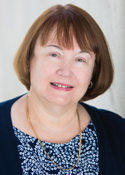 Award Recipient:
Award Recipient:
Wendy L. Havran, Scripps Res. Inst.
AAI Executive Director M. Michele Hogan will introduce the awardee and present the award during the AAI Business Meeting.
The AAI Distinguished Service Award recognizes Dr. Havran for enduring and exemplary service to AAI and the immunology community.
AAI-BD Biosciences Investigator Award Presentation and Lecture
Generously supported by BD Biosciences
Saturday, May 5, 4:30 PM – 5:30 PM, Ballroom D
Chair:
Wayne M. Yokoyama, Washington Univ. Sch. of Med., AAI President
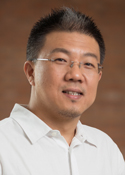 Award Recipient:
Award Recipient:
Hai Qi, Tsinghua Univ., China
T-B interactions and the germinal center response
AAI President Wayne M. Yokoyama and Robert Balderas, Vice President of Biological Sciences, BD Biosciences, will introduce the awardee and present the award immediately prior to Dr. Qi’s lecture.
The AAI-BD Biosciences Investigator Award recognizes an investigator for early-career achievement in immunology research.
AAI-BioLegend Herzenberg Award Presentation and Lecture
Generously supported by BioLegend
Sunday, May 6, 12:30 PM – 1:30 PM, Room 10AB
Chair:
Wayne M. Yokoyama, Washington Univ. Sch. of Med., AAI President
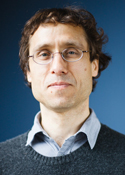 Award Recipient:
Award Recipient:
Jason G. Cyster, HHMI, Univ. of California, San Francisco
Deciphering the guidance cue code for B cell immunity
AAI President Wayne M. Yokoyama and Gene Lay, President and CEO, BioLegend, will introduce the awardee and present the award immediately prior to Dr. Cyster’s lecture.
The AAI-BioLegend Herzenberg Award recognizes outstanding research contributions to the field of immunology in the area of B cell biology.
AAI-Thermo Fisher Meritorious Career Award Presentation and Lecture
Generously supported by Thermo Fisher Scientific
Sunday, May 6, 4:30 PM – 5:30 PM, Ballroom D
Chair:
Wayne M. Yokoyama, Washington Univ. Sch. of Med., AAI President
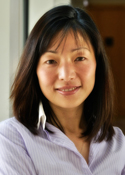 Award Recipient:
Award Recipient:
Akiko Iwasaki, HHMI, Yale Sch. of Med.
Learning immunology from viruses
AAI President Wayne M. Yokoyama and Christoph Hergersberg, Vice President of Research and Development, Thermo Fisher Scientific, will introduce the awardee and present the award immediately prior to Dr. Iwasaki’s lecture.
The AAI-Thermo Fisher Meritorious Career Award recognizes a mid-career scientist for exceptional research contributions to the field of immunology.
AAI Excellence in Mentoring Award Presentation
Monday, May 7, 12:30 PM, Ballroom D
Chair:
Wayne M. Yokoyama, Washington Univ. Sch. of Med., AAI President
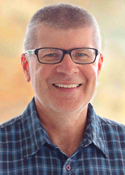 Award Recipient:
Award Recipient:
Marc K. Jenkins, Univ. of Minnesota Med. Sch.
AAI President Wayne M. Yokoyama, Stephen J. McSorley, Univ. of California, Davis, and Marion Pepper, Univ. of Washington, will introduce the awardee and present the award prior to the start of the President’s Symposium.
The AAI Excellence in Mentoring Award recognizes exemplary career contributions to a future generation of scientists.
AAI-Steinman Award for Human Immunology Research Presentation and Lecture
Monday, May 7, 4:30 PM – 5:30 PM, Ballroom D
Chair:
Wayne M. Yokoyama, Washington Univ. Sch. of Med., AAI President
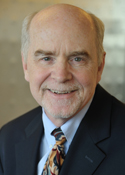 Award Recipient:
Award Recipient:
John J. O’Shea, NIAMS, NIH
Cytokine signaling: translational advances, future opportunities and challenges
AAI President Wayne M. Yokoyama will introduce the awardee and present the award immediately prior to Dr. O’Shea’s lecture.
The AAI-Steinman Award for Human Immunology Research recognizes an individual for significant, sustained achievement in immunology research pertinent to human disease pathogenesis, prevention, or therapy.
In addition to Career Awards, AAI annually provides more than 700 AAI meeting Travel Awards and Grants to recognize the promise and bolster the professional development of investigators of all career stages.
-
- AAI Trainee Abstract Awards
- AAI Trainee Poster Awards
- AAI-Thermo Fisher Trainee Achievement Awards
- Pfizer-Showell Travel Award
- Lefrançois-BioLegend Memorial Award
- Chambers-Thermo Fisher Scientific Memorial Award
- Lustgarten-Thermo Fisher Scientific Memorial Award
- AAI Early Career Faculty Travel Grants
- AAI Laboratory Travel Grants
- AAI Undergraduate Faculty Travel Grants
For information on all AAI Awards, visit www.aai.org/Awards.
AAI Committee Symposia & Sessions
Listings in this section appear in alphabetical order according to sponsoring committee.
AAI Clinical Immunology Committee
Reverse Translation: Learning From the Patient
Saturday, May 5, 3:45 PM – 5:45 PM, Room 12AB
Chairs:
Thomas F. Gajewski, Univ. of Chicago Med. Ctr.; AAI Clinical Immunology Committee Chair
Megan Sykes, Columbia Univ.
Speakers:
- Eric Meffre, Yale Univ., T cells prevent the peripheral accumulation of autoreactive naïve B cells
- Catarina E. Hioe, Icahn Sch. of Med., Mount Sinai, HIV vaccine design guided by patients’ antibody responses
- Megan Sykes, Columbia Univ., Tracking the human alloresponse in transplant recipients
- Jordan Orange, Baylor Col. of Med., Learning about NK cells from inherent defects in human immunity
While translational research has traditionally moved basic immunology knowledge forward into clinical application, varying clinical presentations of human immune-related disease processes, as well as variability in therapeutic outcomes, have provided opportunities for discovery of novel mechanistic hypotheses directly from patients. These types of investigations have been enabled by key technologies, including single-cell assays, high-throughput genomic sequencing, and improved bioinformatic algorithms. Tissues being sampled include biopsy material from target organs, peripheral blood cells and serum/plasma, germline DNA, and stool for microbiota analysis. Such work is accelerating therapeutic advances in autoimmunity, solid organ transplantation, and cancer immunotherapy. A sampling of presentations will highlight opportunities in reverse translational immunology research.
AAI Committee on Public Affairs
Town Hall Meeting on NIH Efforts to Fund the Next Generation: Progress, Challenges and Future Directions
Sunday, May 6, 10:15 AM – 12:15 PM, Room 18AB
Chair:
Beth A. Garvy, Professor, Univ. of Kentucky; AAI Committee on Public Affairs Chair
Speakers:
- Lawrence A. Tabak, Principal Deputy Director, NIH, The NIH NGRI: why it is needed and how it works
- Gary A. Koretzky, Vice Dean, Weill Cornell Med., The potential impact of the NGRI on training, hiring, promotion, tenure, and beyond
- Judy L. Cannon, Associate Professor, Univ. of New Mexico Sch. of Med., Perspectives of an early career investigator: will the NGRI alleviate the struggle to establish a research career?
The current funding environment has raised serious concerns about the long-term viability of the biomedical research enterprise, as securing NIH grants has become increasingly difficult for scientists early in their careers. To address this issue, NIH launched the Next Generation Researchers Initiative (NGRI) in June 2017 to increase support for meritorious Early Stage Investigators (ESIs) and Early Established Investigators (EEIs). Despite the Initiative’s laudable goals, many questions remain, including how NIH Institutes and Centers will reprioritize funds to support these early and mid-career investigators, and how it will impact those who are not targeted by the program. Speakers will discuss NIH implementation of the Initiative; provide a variety of perspectives on its progress, challenges, and future directions; answer audience questions; and listen to attendees’ feedback.
AAI Education Committee
Careers in Biotech: Panel Discussion and Networking
Saturday, May 5, 7:00 PM – 9:00 PM, Room 17AB
Chair:
Kerry A. Casey, MedImmune
Panelists:
- Andrew C. Chan, Senior Vice President, Research Biology, Genentech, Inc.
- David J. DiLillo, Staff Scientist, Regeneron Pharmaceuticals, Inc.
- Stephen T. Haley, Vice President, North America, and Chief Commercial Officer, Immudex
- Catherine J. McMahan, Senior Director, Aptevo Therapeutics
Many opportunities exist in industry for scientists with advanced degrees. There are positions in laboratory research, program management, business development, regulatory affairs, clinical trials oversight, medical liaison, and more. This panel features scientists employed in a variety of positions in industry discussing their career paths and the skills required for success in each. Following the panel discussion, enjoy casual conversation with the speakers and other scientists from industry at a networking reception.
Immunology Teaching Interest Group
Saturday, May 5, 11:00 AM – 1:00 PM, Room 10AB
Chairs:
Anil K. Bamezai, Villanova Univ.
David W. Mullins, Dartmouth Col.
Panelists:
- Edith Porter, California State Univ., Los Angeles, Integrating caring and the human dimension in immunology to improve student learning
- Crystal C. Walline, Univ. of North Carolina, Pembroke, Teaching immunology essentials with clinical correlations
- Doreen E. Szollosi, Univ. of Saint Joseph Sch. of Pharmacy, Promoting critical thinking through writing in a first-year immunology course
- Kara R. Lukin and Katja Aviszus, Univ. of Colorado, Denver, How to create effective student-driven learning without becoming overwhelmed
Breakout Session Leaders:
- Anil K. Bamezai, Villanova Univ., Intro undergraduate/graduate immunology: developing a teaching philosophy and a course syllabus
- Stephanie James, Regis Univ. Sch. of Pharmacy, Using team-based learning to teach immunology
- Paula Kavathas, Yale Univ., A network of universities collaborate to improve STEM education and literacy
- David W. Mullins, Dartmouth Col., Topics in immunology teaching for medical schools: selecting course content and “teaching to the USMLE”
Are you looking for new ideas or strategies to enliven and improve your teaching? If so, please join us for this special interest group which will focus on strategies that instructors can use to successfully convey immunology concepts to students at the undergraduate and graduate level. Topics will include the use of clinical correlations, writing, immediate feedback assessment, and more. The session will end with structured breakout discussion groups on team-based learning, undergraduate/graduate education topics, and medical school teaching topics. Current educators, new faculty, and trainees with an interest in teaching are welcome.
AAI Education Committee & AAI Committee on the Status of Women
Careers in Science Roundtable
Sunday, May 6, 12:00 PM – 1:30 PM, Ballroom BC
Chair:
Laura A. Solt, Scripps Res. Inst.; AAI Committee on the Status of Women Chair
At this popular session, attendees will have the opportunity to meet with experienced scientists to explore specific career issues important to men and women in science today. Gain insights into issues you are confronting in your own careers. Topics include international opportunities in science, succeeding in graduate school, participating in NIH Study Sections, considerations for scientists in M.D.-Ph.D. careers, and exciting careers outside of the bench. There are also table discussions on navigating work-life issues such as balancing careers with family and transitioning from specific career stages that may be relevant to any work environment (academic research, biotech industry, governmental agencies, non-profit). Don’t miss this great networking opportunity! Registration Fee: $30 (Lunch included.)
Discussion topics and table leaders:
- Research Careers in Academia
- Succeeding in Graduate School
Table Leaders: Janice Blum, Indiana Univ. Sch. of Med.; Charlotte M. Vines, Border Biomedical Research Ctr. - Graduate Student to Postdoc: finding a postdoc, interviewing
Table Leaders: Ann Griffith, Univ. of Texas Hlth. Sci. Ctr., Houston; Anthony Rongvaux, Fred Hutchinson Cancer Res. Ctr.; Olivera J. Finn, Univ. of Pittsburgh Sch. of Med.; Malini Raghavan, Univ. of Michigan Med. Sch.; Susan Kovats, Oklahoma Med. Res. Fndn.; Laura A. Solt, Scripps Res. Inst. - Postdoc to PI
- Government Research Institutions
Table Leaders: Charles E. Egwuagu, NEI, NIH; Crystal L. Loving, USDA - Medical Schools
Table Leaders: Madeleine W. Cunningham, Univ. of Oklahoma Hlth. Sci. Ctr.; Lauren A. Zenewicz, Univ. of Oklahoma Hlth. Sci. Ctr.; Lyse A. Norian, Univ. of Alabama, Birmingham; Yina H. Huang, Geisel Sch. of Med. Dartmouth Col. - Undergraduate Institutions
Table Leaders: Jennifer Manilay, Univ. of California, Merced; Crystal Walline, Univ. of North Carolina, Pembroke; Penny E. Shockett, Southeastern Louisiana Univ.; Jennifer A. Punt, Univ. of Pennsylvania
- Government Research Institutions
- New PI:
- Recruiting Students and Postdocs
Table Leaders: Marlene Bouvier, Univ. of Illinois, Chicago; Dan J. Carr, Univ. of Oklahoma Hlth. Sci. Ctr. - Preparing for Promotion
Table Leaders: Allan J. Zajac, Univ. of Alabama, Birmingham; Lisa K. Denzin, Child Health Inst. of New Jersey, Rutgers
- Recruiting Students and Postdocs
- Negotiating an Academic Position
Table Leaders: William R. Green, Geisel Sch. of Med. Dartmouth; Marion Pepper, Univ. of Washington - Mentoring Effectively
Table Leaders: Heth R. Turnquist, Univ. of Pittsburgh Sch. of Med.; Laura Santambrogio, Albert Einstein Col. of Med.; K. Scott Weber, Brigham Young Univ. - How to Build a Network for Postdocs
Table Leaders: Gudrun Debes, Thomas Jefferson Univ.; Bao Vuong, City Univ. of New York - Networking Skills for PIs
Table Leaders: Lawrence P. Kane, Univ. of Pittsburgh; Laurie E. Harrington, Univ. of Alabama, Birmingham
- Succeeding in Graduate School
- Career and Family: balancing parenthood and career; the dual career couple
Table Leaders: Gail A. Bishop, Univ. of Iowa; Michelle A. Swanson-Mungerson, Midwestern Univ. Chicago Col. of Osteopathic Med.; Paula M. Lutz, Univ. of Wyoming - Careers in Biotech and Industry: moving from academia to industry and vice versa
Table Leaders: Hilario Ramos, Molecular Templates; Mandy J. McGeachy, Univ. of Pittsburgh; Shannon J. Turley, Genentech; Robert Balderas, BD Biosciences; David J. DiLillo, Regeneron Pharmaceuticals, Inc.; Jacqueline M. McBride, Genentech; Catherine J. McMahan, Aptevo Therapeutics; Stephen T. Haley, Immudex; Kerry A. Casey, MedImmune; Jane A. Gross, Aptevo Therapeutics; Steven F. Ziegler, Benaroya Res. Inst.; Karsten Sauer, Pfizer, Inc. - Careers at Governmental Agencies
Table Leaders: Niki M. Moutsopoulos, NIH; Stacy E. Ferguson, NIAID, NIH; Deborah L. Hodge, CSR, NIH; Tod Merkel, FDA - NIH Study Section Insights
- Grant Writing for Fellowships/Transition Awards
Table Leaders: Tajie H. Harris, Univ. of Virginia; Mark L. Lang, Univ. of Oklahoma Hlth. Sci. Ctr.; Virginia Shapiro, Mayo Clinic - Grant Writing for PIs
Table Leaders: Carol F. Webb, Univ. of Oklahoma Hlth. Sci. Ctr.; Andre Ballesteros-Tato, Univ. of Alabama, Birmingham; Sarah L. Gaffen, Univ. of Pittsburgh; Jose R. Conejo-Garcia, Moffitt Cancer Ctr.
- Grant Writing for Fellowships/Transition Awards
- The Physician Scientist: balancing clinical and research duties
Table Leaders: Michael Silverman, Univ. of Pennsylvania; Gerald P. Morris, Univ. of California, San Diego; Penelope A. Morel, Univ. of Pittsburgh - Research from the M.D., Ph.D. Perspective
Table Leaders: Robyn S. Klein, Washington Univ. Sch. of Med.; Celeste Morley, Washington Univ. Sch. of Med. - Non-Research Careers for Scientists: careers enabling scientists to advance the field away from the bench
- Scientific Publishing
Table Leaders: Irina Tiper, The Journal of Immunology; Anand Balasubramani, Science Immunology - Opportunities for Scientists in Foundations/Non-profits
Table Leaders: Courtney R. Pinard, Career Development and Awards, AAI - Careers in Science Policy
Table Leaders: Lauren G. Gross, Public Policy and Government Affairs, AAI; Lauren L. Brodd, Public Policy and Government Affairs, AAI
- Scientific Publishing
- International Opportunities in Science
Table Leaders: Anne Hosmalin, Institut Cochin, Université Paris-Descartes Sorbonne-Paris-Cité; Christopher J. Paige, Princess Margaret Cancer Ctr.; Hans-Martin Jäck, Univ. of Erlangen-Nürnberg
AAI Minority Affairs Committee
Careers Roundtable and Speed Networking Session
Saturday, May 5, 11:45 AM – 2:15 PM, Ballroom BC
Chair:
Robert J. Binder, Univ. of Pittsburgh; AAI Minority Affairs Committee Chair
Networking skills have never been more crucial to ensure success for early/mid-career scientists, including those traditionally under-represented in biomedical research. At the roundtable, take advantage of the opportunity to meet in small-group format with accomplished, senior immunologists to hear how they have handled the career challenges you now face and learn what they believe will work for you today. Then, practice networking in a relaxed environment offering a structured networking exercise and personalized feedback on communicating your scientific interests/objectives most effectively. Scientists and trainees of all backgrounds are encouraged to attend! Registration Fee: $30 (Includes lunch plus coffee during networking hour.)
Discussion topics and table leaders:
- Grad Student: finding a mentor, setting sights on postdoc training
- Table Leaders: Luis A. Sanchez-Perez, Duke Univ.; Tonya Webb, Univ. of Maryland; Adriana Larregina, Univ. of Pittsburgh; Elina Zúñiga, Univ. of California, San Diego
- Postdoc: finding a mentor, setting sights on a faculty position
- Table Leaders: Mireia Guerau-de-Arellano, Ohio State Univ.; Eduardo Davila, Univ. of Maryland; Tyler Curiel, Univ. of Texas Health Sci. Ctr., San Antonio
- Junior Faculty: preparing for promotion and tenure
- Table Leaders: Robert J. Binder, Univ. of Pittsburgh; Floyd Wormley, Univ. of Texas, San Antonio; Jose R. Conejo-Garcia, Wistar Inst.
- —New!— Work-life balance, it’s real!
- Table Leader: Claudia Jakubzick, Natl. Jewish Hlth.
- Academia or Industry: how to decide (or switch sides)
- Table Leaders: Jonathan A. Deane, GNF/Novartis; Homero Sepulveda, Thermo Fisher Scientific; Cherié Butts, Biogen
- Government Agency Careers:
- Table Leaders: Charles Egwuagu, NEI, NIH; Jennifer Martinez, NIEHS, NIH
- Non-Bench-Research Science Careers – e.g., entrepreneurship/research technology; intellectual property/patent law; non-profits/foundations
- Table Leaders: Robert Balderas, BD Biosciences (research technology); Edwin Flores, Chalker Flores LLP (intellectual property law); Thandi Onami, Gates Fndn. (non-profits, foundations); James Lillard, Morehouse Sch. of Med. and JYANT Technologies (entrepreneurship)
AAI Vanguard Lecture
Monday, May 7, 11:15 AM – 12:15 PM, Room 17AB
Chair:
Robert J. Binder, Univ. of Pittsburgh; AAI Minority Affairs Committee Chair
Speaker:
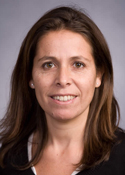
- Elina Zúñiga, Univ. of California, San Diego, The art of coexistence: immune adaptations during chronic viral infections
Since 2003, the AAI meeting has featured a scientific lecture presented by an AAI member who is an underrepresented minority investigator noted for scientific achievement and exemplary career success.
AAI Program Committee
Back to School: A Review of Four Fast-Moving Fields
Friday, May 4, 2:30 PM – 4:30 PM, Room 17AB
Chairs:
Eugene M. Oltz, Washington Univ. Sch. of Med., AAI Program Committee Chair
Jennifer A. Punt, Univ. of Pennsylvania Sch. of Vet. Med.
Speakers:
- Jeffrey C. Rathmell, Vanderbilt Univ., Update on immunometabolism and how to fuel immunity
- David A. Hildeman, Cincinnati Children’s Hosp. Med. Ctr., Cell death in the immune system
- Ann J. Feeney, Scripps Res. Inst., Chromatin conformation and epigenetics of the antigen receptor loci shape emerging immune repertoires
- Paul G. Thomas, St. Jude Children’s Res. Hosp., Defining essential features of epitope-specific T cell receptor repertoires responding to pathogens and tumors
This workshop intends to bring a broad audience up-to-date on a few emerging or rapidly changing fields or areas of technological innovation. Expert lecturers will provide an overview of each trending topic with an emphasis on communicating big picture concepts.
AAI Publications Committee
Writing Scientific Manuscripts and Responding to Reviewers: Tips on Navigating the Process
Sunday, May 6, 12:30 PM – 2:30 PM, Room 16AB
Chairs:
Brian D. Evavold, Univ. of Utah; Chair, AAI Publications Committee
Pamela J. Fink, Univ. of Washington Sch. of Med.; Editor-in-Chief, The Journal of Immunology
Speakers:
- Brian D. Evavold, Univ. of Utah, Advice on writing a scientific manuscript
- Suzanne Ostrand-Rosenberg, Univ. of Maryland, Baltimore County, You just received the reviews of your manuscript: how do you respond?
- Pamela J. Fink, Univ. of Washington Sch. of Med., Ethics in publishing: how to keep to the straight and narrow
In this session sponsored by the AAI Publications Committee, experienced editors will provide valuable insights to the processes of preparing a manuscript and responding to reviewers’ comments.
Panelists will address questions such as: When writing a manuscript, what steps can an author take to enhance its impact on editors, reviewers and, if accepted for publication, on readers? What are recommended practices for responding to reviewers’ comments? How can authors enhance the presentation of data in figures? In addition, the Editor-in-Chief of The Journal of Immunology will speak on how to avoid possible ethical missteps in scientific publishing.
AAI Veterinary Immunology Committee
Neonatal Immunity: Getting it Right from the Start
Support in part provided by the American Association of Veterinary Immunologists
Saturday, May 5, 12:30 PM – 2:30 PM, Room 19AB
Chairs:
Crystal Loving, Natl. Animal Dis. Ctr., ARS, USDA; AAI Veterinary Immunology Committee Chair
Renukaradhya Gourapura, Ohio State Univ. Col. of Vet. Med.
Speakers:
- John E. Butler, Univ. of Iowa Carver Col. of Med., The critical window of neonatal immune system development: lessons from animal models
- Bettina Wagner, Cornell Univ. Col. of Vet. Med., Neonatal memory B cell activation in horses
- Tod J. Merkel, FDA, Protecting neonates from pertussis—lessons from a baboon model
- Philip Griebel,VIDO-Intervac, Univ. of Saskatchewan, Bovine mucosal immune system development: vaccines targeting the pathobiome
This symposium will emphasize factors impacting neonatal immune development and protection against disease across various animal systems. Whereas transitioning from a sterile environment to a world with a multitude of microbes makes a neonate vulnerable to infection, exposure to the microbial world is important for immune maturation, but poses a risk to neonatal health. Maternal-derived immune factors can provide protection during the vulnerable neonatal period, and various methods are being utilized to exploit maternal immunity or enhance neonatal acquired immunity. This symposium will highlight factors that can improve or impede neonatal health, identifying commonalities relevant to both human and animal health.
NIH Institute-Sponsored Symposia
National Institute on Aging (NIA) Symposium
Aging and Hematopoiesis
Sunday May 6, 8:00 AM – 10:00 AM, Room 19AB
Chairs:
Rebecca A. Fuldner, NIA, NIH
Ken Dorshkind, Univ. of California, Los Angeles
Speakers:
- Paul Frenette, Albert Einstein Col. of Med., Aging of the bone marrow environment
- Emmanuelle Passegue, Columbia Univ. Med. Ctr., Hematopoietic stem cell function in regeneration and aging
- Ken Dorshkind, Univ. of California, Los Angeles, The effects of aging on the transcriptional profile of hematopoietic stem cell subpopulations
- Danica Chen, Univ. of California, Berkeley, Hematopoietic stem cell aging and rejuvenation: inflammasome regulation of the mitochondrial metabolic checkpoint
National Institute of Allergy and Infectious Diseases (NIAID) Symposium
Maternal Effects on Fetal Immunity
Sunday, May 6, 3:45 PM – 5:45 PM, Room 16AB
Chairs:
Alison Deckhut Augustine, NIAID, NIH
Gil Mor, Yale Univ.
Speakers:
- Gil Mor, Yale Univ., Mechanism of immune regulation by the placenta
- Erin Adams, Univ. of Chicago, How antigen presentation by the nonclassical MHC, HLA-F, modulates its interactions with NK receptors
- Catherine Blish, Stanford Univ., Expansion of CD38-expressing NK cells with enhanced antiviral activity during pregnancy
- Tippi MacKenzie, Univ. of California, San Francisco, Maternal and fetal T cell activation during preterm labor
National Institute of Environmental Health Sciences (NIEHS) Symposium
Novel Findings and Next Steps Concerning Nanomaterial Exposures on the Immune System
Sunday, May 6, 12:30 PM – 2:30 PM, Room 12AB
Chairs:
Michael C. Humble, NIEHS, NIH
Andrij Holian, Univ. of Montana
Speakers:
- Jared Brown, Univ. of Colorado, Denver, Understanding mast cell activation in the development of safe nanotechnologies
- Lisa DeLouise, Univ. of Rochester, Immunomodulatory effects of nanoparticles in a mouse model of skin and allergy
- Andrij Holian, Univ. of Montana, Nanomaterials accelerate systemic autoimmune disease in lupus-prone New Zealand mixed mice
- Srikanth Nadadur, NIEHS, NIH, Nano environmental health and safety research: where are we now?
Guest Society Symposia
The American Society of Gene and Cell Therapy (ASGCT) Symposium
Immunologic Responses to Gene Therapy for Hemophilia
Saturday, May 5, 10:15 AM – 12:15 PM, Room 19AB
Chairs:
Federico Mingozzi, INSERM, Univ. of Pittsburgh Med. Ctr., Genethon
Roland W. Herzog, Univ. of Florida
Speakers:
- Roland W. Herzog, Univ. of Florida, In vivo gene therapy to induce immune tolerance in hemophilia
- Federico Mingozzi, INSERM, Univ. of Pittsburgh Med. Ctr., Genethon, Immune responses in clinical trials for hemophelia
- David W. Scott, Uniformed Services Univ., Regulatory T cell-mediated tolerance induction in hemophilia
- Antonia Follenzi, Univ, of Piemonte Orientale, microRNA-regulated lentiviral gene therapy for treatment and immune tolerance in hemophilia
The American Society of Transplantation (AST) Symposium
New Paradigms in T Follicular Cell Biology and Transplant Immunity
Saturday, May 5, 12:30 PM – 2:30 PM, Room 16AB
Chairs:
Peter Heeger, Icahn Sch. of Med., Mount Sinai
Maria-Lusia Alegre, Univ. of Chicago
Speakers:
- Scott Hale, Univ. of Utah, Recent progress in T follicular helper cell biology
- Raul Badell, Univ. of Utah, Impact of CD28 costimulation blockade of T follicular helper and follicular regulatory responses in transplantation
- Peter S. Heeger, Icahn Sch.of Med., Mount Sinai, Complement regulation of T follicular helper and germinal center B cells induced by transplantation
- Diana Metes, Univ. of Pittsburgh, Tracking T follicular helper cells in human transplant recipients
The American Society of Tropical Medicine and Hygiene (ASTMH) Symposium
Immune Lessons from Parasites
Monday, May 7, 8:00 AM – 10:00 AM, Room 10AB
Chairs:
Christine Peterson, Univ. of Iowa
Noah Butler, Univ. of Iowa
Speakers:
- P’ng Loke, New York Univ., Alternatively activated macrophages during helminth infection
- Emma Wilson, Univ. of California, Riverside, The neuroimmunological niche of Toxoplasma infection
- Tiffany Borbon, Univ. of Iowa, Bacterial co-infection in murine cutaneous leishmaniasis
- Angela Minassian, Oxford, Safety and immunogenicity of the novel Plasmodium falciparum blood stage vaccine RH5.1/AS01B in a phase 1/11a clinical trial
Canadian Society for Immunology (CSI) Symposium
Innate Lymphoid Cells and Inflammatory Disease
Monday, May 7, 3:45 PM – 5:45 PM, Room 10AB
Chairs:
Kelly McNagny, Univ. of British Columbia
Arthur Mortha, Univ. of Toronto
Speakers:
- Kathrin Warner, Princess Margaret Cancer Ctr., Innate lymphoid cells regulate CD8 T cell immunity
- Jörg Fritz, McGill Univ., Molecular regulation of group 2 innate lymphoid cell functions
- Arthur Mortha, Univ. of Toronto, Adaptive immune control of ILC3 functions
- Fumio Takei, Univ. of British Columbia, Heterogeneity of mouse lung ILC2
- Kelly McNagny, Univ. of British Columbia, Role of innate lymphoid cells in fibrotic disease
Chinese Society for Immunology (CSI) Symposium
The Regulatory Function of Innate Lympohid Cells and T Cells
Sunday, May 6, 3:45 PM – 5:45 PM, Room 10AB
Chairs:
Bing Sun, Shanghai Inst. of Biochemistry and Cell Biology
Leslie Berg, Univ. of Massachusetts Med. Ctr.
Speakers:
- Lanfen Chen, Sch. of Life Sciences, Xiamen Univ., The transcriptional coactivator TAZ regulates the Treg/Th17 balance
- Guangwei Liu, Beijing Normal Univ., Histone deacetylase SIRT1 negatively regulates the differentiation of IL-9-producing CD4+ T cells
- Xin Lin, Sch. of Med., Tsinghua Univ., The contribution of IL-17 receptor signaling components to psoriasis development
- Zhanguo Li, Beijing Univ., Low dose interleukin-2 treatment selectively modulates CD4+ T cells subsets in patients with systemic lupus erythematosus
Chinese Society of Immunology, Taiwan (CSIT) Symposium
Inflammation and Immunity
Sunday, May 6, 10:15 AM – 12:15 PM, Room 16AB
Chairs:
Jenny Ting, Univ. of North Carolina
Kuo-I Lin, Genomics Res. Ctr., Academia Sinica
Speakers:
- Kuo-I Lin, Genomics Res. Ctr, Academia Sinica, O-GlcNAcylation in B cell immunity
- Szu-Ting Chen, Inst. of Clin. Med., Sch. of Med., Natl. Yang-Ming Univ., CLEC5A is a critical receptor in innate immunity against Listeria infection
- Mu-Hwa Yang, Inst. of Clin. Med., Sch.of Med., Natl. Yang-Ming Univ., Communications between macrophages and cancer cells during tumor progression
- Ming-Zong Lai, Inst. of Molec. Biol., Academia Sinica, Resolution of inflammation in primary immunodeficiency: an example or an exception?
- Chien-Kuo Lee, Grad. Inst. of Immunology, Natl. Taiwan Univ. Col. of Med., Essential role of STAT1 in B cell differentiation
European Federation of Immunological Societies (EFIS) Symposium
T Cell Memory
Saturday, May 5, 10:15 AM – 12:15 PM, Room 12AB
Chairs:
Federica Sallusto, Inst. for Res. in Biomedicine, Bellinzona
Susan Swain, Univ. of Massachusetts Med. Sch.
Speakers:
- René van Lier, Sanquin Blood Supply Fndn., The Netherlands, Border control by virus-specific T cells
- Susan Swain, Univ. of Massachusetts Med. Sch., Making CD4 memory and TFH and ThCTL effectors
- Arne Akbar, Univ. Col. London, Strategies for enhancing immune memory during aging
- Andreas Radbruch, German Rheumatism Res. Ctr. Berlin, The resting and restless memory
German Society for Immunology (DGfI) Symposium
Immune Regulation by Dendritic Cells
Monday, May 7, 10:15 AM – 12:15 PM, Room 12AB
Chairs:
Diana Dudziak, Univ. Hosp. Erlangen
Bjӧrn Clausen, Univ. Med. Ctr. of the Johannes Gutenberg Univ. Inst. for Molec. Med.
Speakers:
- Michael Lohoff, Univ. of Marburg, The German Society for Immunology
- Martin Zenke, RWTH Aachen Univ. Med. Sch., Inst. for Biomed. Engin., Molecules for development and homing of dendritic cells
- Anne Krug, Ludwig-Maximilians-Univ Munich Inst. for Immunology, Development and plasticity of plasmacytoid dendritic cells
- Bjӧrn Clausen, Univ. Med. Ctr. of the Johannes Gutenberg Univ. Inst. for Molec. Med., Dendritic cells drive psoriatic skin disease in mice
- Diana Dudziak, Univ. Hosp. Erlangen, Human lymphoid organ dendritic cell identity
- Joachim Schultze, Univ. of Bonn, Single-cell technologies to decipher the human myeloid cell atlas
International Complement Society (ICS)
New Discoveries in Complement: Impact on Health and Disease
Sunday, May 6, 12:30 PM – 2:30 PM, Room 19AB
Chairs:
Viviana P. Ferreira, Univ. of Toledo Col. of Med.
Rick Wetsel, Univ. of Texas Hlth. Sci. Ctr., Houston
Speakers:
- Betty Diamond, Feinstein Ins. for Med. Res., C1q as an immune modulator of pro-inflammatory pathways
- Claudia Kemper, NIH, Intracellular complement is required for basic physiological processes in immune cells
- Ronald Taylor, Univ. of Virginia, Cancer and complement therapeutics: molecular structure to treatment regimens
- Michael Carroll, Harvard Med. Sch., CD21 blockade of neurological symptoms of lupus
The International Cytokine and Interferon Society (ICIS) Symposium
Cytokine and Interferon Signaling in the Immune Response
Saturday, May 5, 3:45 PM – 5:45 PM, Room 16AB
Chairs:
Sarah L. Gaffen, Univ. of Pittsburgh
Shao-Cong Sun, MD Anderson Cancer Ctr.
Speakers:
- Shao-Cong Sun, MD Anderson Cancer Ctr., NF-κB in Th17 responses: from host defense to inflammation
- Sarah L. Gaffen, Univ. of Pittsburgh, The yin and yang of IL-17 signaling
- Michail S. Lionakis, NIH, NIAID, Host defense against Candida: lessons from primary immunodeficiencies
- Jenny Ting, Univ. of North Carolina, Chapel Hill, Intracellular innate receptors: molecular biology, diseases, and the microbiome
Korean Association of Immunologists (KAI) and Association of Korean Immunologists in America (AKIA) Symposium
Novel Regulators of Immune Homeostasis and Inflammation
Saturday, May 5, 3:45 PM – 5:45 PM, Room 10AB
Chairs:
Woong-Kyung Suh, Montreal Clin. Res. Inst.
Je-Min Choi, Hanyang Univ.
Speakers:
- Yoontae Lee, Postech, The role of Capicua in lymphocyte development and immune disorder
- SunJung Kim, Feinstein Inst. for Med. Res., Tolerogenic function of dendritic cells and autoimmunity
- Je-Min Choi, Hanyang Univ., Ligand independent CTLA-4 signaling peptide as a novel immune regulator in autoimmune diseases
- Chang H. Kim, Univ. of Michigan, Roles of gut microbial metabolites in regulating immunity and inflammation
The Obesity Society (TOS) Symposium
Abnormal Metabolism and Inflammation as Driving Mechanisms in Breast Cancer
Sunday, May 6, 10:15 AM – 12:15 PM, Room 18CD
Chairs:
Gerald V. Denis, Boston Univ. Sch. of Med.
Neil M. Iyengar, Mem. Sloan Kettering Cancer Ctr.
Speakers:
- Annapoorni Rangarajan, Indian Inst. of Sci., Inflammation and abnormal metabolism in breast cancer progression
- Catherine Muller, Institut de Pharmacologie et de Biologie Structurale, Bidirectional cross-talk between breast cancer and tumor-surrounding adipocytes in breast cancer progression
- Guillaume Andrieu, Boston Univ. Sch. of Med., BET bromodomain proteins regulate cytokine drivers of breast cancer metastasis
- Daniela F. Quail, McGill Univ. Cancer Ctr., Obesity and mechanisms of breast cancer metastasis
Society for Immunotherapy of Cancer (SITC) Symposium
Combination Cancer Immunotherapy: Expanding Clinical Success
Saturday, May 5, 8:00 AM – 10:00 AM, Room 12AB
Chairs:
Bernard A. Fox, Earle A. Chiles Res. Inst.
Leisha Emens, Johns Hopkins Univ.
Speakers:
- Lawrence Fong, Univ. of California, San Francisco, Dr. Jekyll and Mr. Hyde of combination checkpoint inhibition
- Brendan Curti, Earle A. Chiles Res. Inst., Costimulation and chronicity: does timing matter
- Leisha Emens, Johns Hopkins Univ., Emerging immunotherapy combinations for breast cancer
- Chrystal Paulos, Med. Univ. of South Carolina, Harnessing durable memory T cell responses against cancer
The Society for Leukocyte Biology (SLB) Symposium
Early Career Investigators: Tissue Phagocyte Heterogeneity in Health and Disease
Monday, May 7, 10:15 AM – 12:15 PM, Room 18CD
Chairs:
Robert A. Clark, Univ. of Texas Hlth. Sci. Ctr, San Antonio
Larry Schlesinger, Texas Biomed
Speakers:
- Mark Headley, Univ. of California, San Francisco, Intravital analysis of tumor-immune engagement during pulmonary metastasis
- Ty Troutman, Univ. of California, San Diego, Hepatic myeloid cell diversity during fibrosis and non-alcoholic steatohepatitis
- Wendy Liu, Univ. of California, Irvine, Biophysical regulation of macrophage phenotype during wound healing
- David Verhoeven, Iowa State Univ., Divergent macrophage control of early viral replication between infants/toddler and adults during influenza infection contributes to enhanced morbidity in the young
Society for Mucosal Immunology (SMI) Symposium
Immune Modulation at Mucosal Barriers
Monday, May 7, 10:15 AM – 12:15 PM, Room 18AB
Chairs:
Lauren A. Zenewicz, Univ. of Oklahoma Hlth. Sci. Ctr.
Nobuhiko Kamada, Univ. of Michigan
Speakers:
- Nobuhiko Kamada, Univ. of Michigan, The mouth-gut axis: the influence of oral pathobionts on gastrointestinal disease
- Manuela Raffatellu, Univ. of California, San Diego, Nutritional immunity in the inflamed gut
- Niki Moutsopoulos, NIDCR, NIH, Tissue-specific immunity at the oral mucosal barrier
- Jay K. Kolls, Tulane Univ., Regulation of mucosal immunity by IL-17R signaling
Society for Natural Immunity (SNI) Symposium
Towards Treatment of Human Cancer with NK Cells
Saturday, May 5, 12:30 PM – 2:30 PM, Room 12AB
Chairs:
Hans-Gustaf Ljunggren, Karolinska Inst.
Katy Rezvani, MD Anderson Cancer Ctr.
Speakers:
- Anjali Mishra, Ohio State Univ., Malignant NK/T cells in the context of human NK cell development
- Hans-Gustaf Ljunggren, Karolinska Inst., Allogeneic NK cell therapy against hematological malignancies
- Katy Rezvany, MD Anderson Cancer Ctr., Off-the-shelf CAR-transduced NK cells for cancer therapy
- Evren Alici, Karolinska Inst., Ex vivo expansion of autologous NK cells for cancer treatment
Career Development Sessions
International Opportunities in Science
Monday, May 7, 10:15 AM – 11:45 AM, Room 10AB
Chair:
Hans-Martin Jäck, Univ. of Erlangen-Nürnberg, Germany
Panelists:
- Anne Hosmalin, Inst. Cochin, France
- Christopher J. Paige, Princess Margaret Cancer Ctr., Canada
- Bing Sun, Chinese Acad. of Sci., China
- Winfried F. Pickl, Med. Univ. of Vienna, Austria
Working as a scientist outside of the U.S. requires curiosity, adaptability, and open-mindedness, which are valuable qualities important for success in any career. Given the international reach of science, this new session will help immunologists learn about opportunities to gain professional experience beyond the U.S. This panel features scientists employed at academic or research institutions around the globe. Panelists will discuss the postdoctoral fellowship and grant application process; the benefits of international training and employment; the challenges in finding science-related jobs outside of the U.S.; and the process of moving your lab to another country. This session is open to anyone.
How to Convert Your CV into a Résumé
Supported in part by a grant to the Federation of American Societies for Experimental Biology (FASEB) from the National Institute of General Medical Sciences (NIGMS), National Institutes of Health [FASEB MARC Program: T36-GM008637-21NCE]
Saturday, May 5, 9:00 AM – 10:00 AM, Room 10AB
Chair:
Mary T. Litzinger, Educ. and Awards Dept., AAI
Speaker:
- Derek Haseltine, Director, Career Develop. Ctr., Baylor Col. of Med.
For anyone seeking a job outside of academe, how you present yourself on paper is critical. A well-prepared résumé can make all the difference in securing that interview. The focus of this session will be on the important elements of a résumé, the differences between a résumé and the standard academic curriculum vitae, and the information needed to make a good impression. In this special career development session, attendees will be instructed in how to transform their CVs into professional résumés. Small breakout sessions for individual consulting will follow. Bring your CV!
Immunology Teaching Interest Group
Sponsored by the AAI Education Committee
Saturday, May 5, 11:00 AM – 1:00 PM, Room 10AB
Chairs:
Anil K. Bamezai, Villanova Univ.
David W. Mullins, Dartmouth Col.
Panelists:
- Edith Porter, California State Univ., Los Angeles, Integrating caring and the human dimension in immunology to improve student learning
- Crystal C. Walline, Univ. of North Carolina, Pembroke, Teaching immunology essentials with clinical correlations
- Doreen E. Szollosi, Univ. of Saint Joseph Sch. of Pharmacy, Promoting critical thinking through writing in a first-year immunology course
- Kara R. Lukin and Katja Aviszus, Univ. of Colorado, Denver, How to create effective student-driven learning without becoming overwhelmed
Breakout Session Leaders:
- Anil K. Bamezai, Villanova Univ., Intro undergraduate/graduate immunology: developing a teaching philosophy and a course syllabus
- Stephanie James, Regis Univ. Sch. of Pharmacy, Using team-based learning to teach immunology
- Paula Kavathas, Yale Univ., A network of universities collaborate to improve STEM education and literacy
- David W. Mullins, Dartmouth Col., Topics in immunology teaching for medical schools: selecting course content and “teaching to the USMLE”
Are you looking for new ideas or strategies to enliven and improve your teaching? If so, please join us for this special interest group, which will focus on strategies that instructors can use to successfully convey immunology concepts to students at the undergraduate and graduate level. Topics will include the use of clinical correlations, writing, immediate feedback assessment, and more. The session will end with structured breakout discussion groups on Team-Based Learning, undergraduate/graduate education topics, and medical school teaching topics. Current educators, new faculty, and trainees with an interest in teaching are welcome.
Careers Roundtable and Speed Networking Session
Sponsored by the AAI Minority Affairs Committee
Saturday, May 5, 11:45 AM – 2:15 PM, Ballroom BC
Chair:
Robert J. Binder, Univ. of Pittsburgh; AAI Minority Affairs Committee Chair
Networking skills have never been more crucial to ensure success for early/mid-career scientists, including those traditionally under-represented in biomedical research. At the roundtable, take advantage of the opportunity to meet in small-group format with accomplished, senior immunologists to hear how they have handled the career challenges you now face and learn what they believe will work for you today. Then practice networking in a relaxed environment offering a structured networking exercise and personalized feedback on communicating your scientific interests/objectives most effectively. Scientists and trainees of all backgrounds are encouraged to attend! Registration Fee: $30 (Includes lunch plus coffee during networking hour.)
Discussion topics and table leaders:
- Grad Student: finding a mentor, setting sights on postdoc training
- Table Leaders: Luis A. Sanchez-Perez, Duke Univ.; Tonya Webb, Univ. of Maryland; Adriana Larregina, Univ. of Pittsburgh
- Postdoc: finding a mentor, setting sights on a faculty position
- Table Leaders: Mireia Guerau-de-Arellano, Ohio State Univ.; Charlotte Vines, Univ. of Texas, El Paso; Eduardo Davila, Univ. of Maryland
- Junior Faculty: preparing for promotion and tenure
- Table Leaders: Robert J. Binder, Univ. of Pittsburgh; Floyd Wormley, Univ. of Texas, San Antonio; Jose R. Conejo-Garcia, Wistar Inst.
- —New!— Work-life balance, it’s real!
- Table Leader: Claudia Jakubzick, Natl. Jewish Hlth.
- Academia or Industry: how to decide (or switch sides)
- Table Leaders: Jonathan A. Deane, GNF/Novartis; Homero Sepulveda, Thermo Fisher Scientific; Cherié Butts, Biogen
- Government Agency Careers:
- Table Leaders: Charles Egwuagu, NEI, NIH; Jennifer Martinez, NIEHS, NIH
- Non-Bench-Research Science Careers – e.g., entrepreneurship/research technology; intellectual property/patent law; non-profits/foundations
- Table Leaders: Robert Balderas, BD Biosciences (research technology); Edwin Flores, Chalker Flores LLP (intellectual property law); Thandi Onami, Gates Fndn. (non-profits/foundations)
Careers in Biotech: Panel Discussion and Networking
Sponsored by the AAI Education Committee
Saturday, May 5, 7:00 PM – 9:00 PM, Room 17AB
Chair:
Kerry A. Casey, MedImmune
Panelists:
- Andrew C. Chan, Senior Vice President, Research Biology, Genentech, Inc.
- David J. DiLillo, Staff Scientist, Regeneron Pharmaceuticals, Inc.
- Stephen T. Haley, Vice President, North America, and Chief Commercial Officer, Immudex
- Catherine J. McMahan, Senior Director, Aptevo Therapeutics
Many opportunities exist in industry for scientists with advanced degrees. There are positions in laboratory research, program management, business development, regulatory affairs, clinical trials oversight, medical liaison, and more. This panel features scientists employed in a variety of positions in industry discussing their career paths and the skills required for success in each. Following the panel discussion, enjoy casual conversation with the speakers and other scientists from industry at a networking reception.
Interviewing for a Job
Supported in part by a grant to the Federation of American Societies for Experimental Biology (FASEB) from the National Institute of General Medical Sciences (NIGMS), National Institutes of Health [FASEB MARC Program: T36-GM008637-21NCE]
Sunday, May 6, 10:15 AM – 11:15 AM, Room 10AB
Chair:
Mary T. Litzinger, Educ. and Awards Dept., AAI
Speaker:
- Derek Haseltine, Director, Career Develop. Ctr., Baylor Col. of Med.
This session will be focused on tips and techniques to help you successfully navigate the interview process. Emphasis will be on how you can present yourself in the best possible light. You will also learn how to respond to unexpected questions. This session is open to anyone but is especially intended for student and postdoctoral attendees.
Careers in Science Roundtable
Sponsored by the AAI Education Committee & AAI Committee on the Status of Women
Sunday, May 6, 12:00 PM – 1:30 PM, Ballroom BC
Chair:
Laura A. Solt, Scripps Res. Inst.; AAI Committee on the Status of Women Chair
At this popular session, attendees will have the opportunity to meet with experienced scientists to explore specific career issues important to men and women in science today. Gain insights into issues you are confronting in your own careers. Topics include international opportunities in science, succeeding in graduate school, participating in NIH Study Sections, considerations for scientists in M.D.-Ph.D. careers, and exciting careers outside of the bench. There are also table discussions on navigating work-life issues, such as balancing careers with family and transitioning from specific career stages, that may be relevant to any work environment (academic research, biotech industry, governmental agencies, non-profit). Don’t miss this great networking opportunity! Registration Fee: $30 (Lunch included.)
Discussion topics and table leaders:
- Research Careers in Academia
- Succeeding in Graduate School
Table Leaders: Janice Blum, Indiana Univ. Sch. of Med.; Charlotte M. Vines, Border Biomedical Research Ctr. - Graduate Student to Postdoc: finding a postdoc, interviewing
Table Leaders: Ann Griffith, Univ. of Texas Hlth. Sci. Ctr., Houston; Anthony Rongvaux, Fred Hutchinson Cancer Res. Ctr.; Olivera J. Finn, Univ. of Pittsburgh Sch. of Med.; Malini Raghavan, Univ. of Michigan Med. Sch.; Susan Kovats, Oklahoma Med. Res. Fndn.; Laura A. Solt, Scripps Res. Inst. - Postdoc to PI
- Government Research Institutions
Table Leaders: Charles E. Egwuagu, NEI, NIH; Crystal L. Loving, USDA - Medical Schools
Table Leaders: Madeleine W. Cunningham, Univ. of Oklahoma Hlth. Sci. Ctr.; Lauren A. Zenewicz, Univ. of Oklahoma Hlth. Sci. Ctr.; Lyse A. Norian, Univ. of Alabama, Birmingham; Yina H. Huang, Geisel Sch. of Med. Dartmouth Col. - Undergraduate Institutions
Table Leaders: Jennifer Manilay, Univ. of California, Merced; Crystal Walline, Univ. of North Carolina, Pembroke; Penny E. Shockett, Southeastern Louisiana Univ.; Jennifer A. Punt, Univ. of Pennsylvania
- Government Research Institutions
- New PI:
- Recruiting Students and Postdocs
Table Leaders: Marlene Bouvier, Univ. of Illinois, Chicago; Dan J. Carr, Univ. of Oklahoma Hlth. Sci. Ctr. - Preparing for Promotion
Table Leaders: Allan J. Zajac, Univ. of Alabama, Birmingham; Lisa K. Denzin, Child Health Inst. of New Jersey, Rutgers
- Recruiting Students and Postdocs
- Negotiating an Academic Position
Table Leaders: William R. Green, Geisel Sch. of Med. Dartmouth; Marion Pepper, Univ. of Washington - Mentoring Effectively
Table Leaders: Heth R. Turnquist, Univ. of Pittsburgh Sch. of Med.; Laura Santambrogio, Albert Einstein Col. of Med.; K. Scott Weber, Brigham Young Univ. - How to Build a Network for Postdocs
Table Leaders: Gudrun Debes, Thomas Jefferson Univ.; Bao Vuong, City Univ. of New York - Networking Skills for PIs
Table Leaders: Lawrence P. Kane, Univ. of Pittsburgh; Laurie E. Harrington, Univ. of Alabama, Birmingham
- Succeeding in Graduate School
- Career and Family: balancing parenthood and career; the dual career couple
Table Leaders: Gail A. Bishop, Univ. of Iowa; Michelle A. Swanson-Mungerson, Midwestern Univ. Chicago Col. of Osteopathic Med.; Paula M. Lutz, Univ. of Wyoming - Careers in Biotech and Industry: moving from academia to industry and vice versa
Table Leaders: Hilario Ramos, Molecular Templates; Mandy J. McGeachy, Univ. of Pittsburgh; Shannon J. Turley, Genentech; Robert Balderas, BD Biosciences; David J. DiLillo, Regeneron Pharmaceuticals, Inc.; Jacqueline M. McBride, Genentech; Catherine J. McMahan, Aptevo Therapeutics; Stephen T. Haley, Immudex; Kerry A. Casey, MedImmune; Jane A. Gross, Aptevo Therapeutics; Steven F. Ziegler, Benaroya Res. Inst.; Karsten Sauer, Pfizer, Inc. - Careers at Governmental Agencies
Table Leaders: Niki M. Moutsopoulos, NIH; Stacy E. Ferguson, NIAID, NIH; Deborah L. Hodge, CSR, NIH; Tod Merkel, FDA - NIH Study Section Insights
- Grant Writing for Fellowships/Transition Awards
Table Leaders: Tajie H. Harris, Univ. of Virginia; Amariliz Rivera-Medina, Rutgers New Jersey Med. Sch.; Mark L. Lang, Univ. of Oklahoma Hlth. Sci. Ctr.; Virginia Shapiro, Mayo Clinic - Grant Writing for PIs
Table Leaders: Carol F. Webb, Univ. of Oklahoma Hlth. Sci. Ctr.; Andre Ballesteros-Tato, Univ. of Alabama, Birmingham; Sarah L. Gaffen, Univ. of Pittsburgh; Jose R. Conejo-Garcia, Moffitt Cancer Ctr.
- Grant Writing for Fellowships/Transition Awards
- The Physician Scientist: balancing clinical and research duties
Table Leaders: Michael Silverman, Univ. of Pennsylvania; Gerald P. Morris, Univ. of California, San Diego; Penelope A. Morel, Univ. of Pittsburgh - Research from the M.D., Ph.D. Perspective
Table Leaders: Robyn S. Klein, Washington Univ. Sch. of Med.; Celeste Morley, Washington Univ. Sch. of Med. - Non-Research Careers for Scientists: careers enabling scientists to advance the field away from the bench
- Scientific Publishing
Table Leaders: Irina Tiper, The Journal of Immunology; Anand Balasubramani, Science Immunology - Opportunities for Scientists in Foundations/Non-profits
Table Leaders: Courtney R. Pinard, Career Development and Awards, AAI - Careers in Science Policy
Table Leaders: Lauren G. Gross, Public Policy and Government Affairs, AAI; Lauren L. Brodd, Public Policy and Government Affairs, AAI
- Scientific Publishing
- International Opportunities in Science
Table Leaders: Anne Hosmalin, Institut Cochin, Université Paris-Descartes Sorbonne-Paris-Cité; Christopher J. Paige, Princess Margaret Cancer Ctr.; Hans-Martin Jäck, Univ. of Erlangen-Nürnberg
NIH Grants Workshop: Demystifying the Grant Application Submission, Review, and Funding Processes
Saturday, May 5, 12:30 PM – 2:30 PM, Room 18AB
Chair:
Tina McIntyre, CSR, NIH
Panelists:
- Tina McIntyre, Scientific Review Officer, III Study Section, Immunology IRG, DPPS, CSR, NIH
- Alison Deckhut-Augustine, Chief, Basic Immunology Branch, Division of Allergy, Immunology, and Transplantation, NIAID, NIH
- Deborah Hodge, Scientific Review Officer, HAI Study Section, Immunology IRG, DPPS, CSR, NIH
This workshop will provide participants with an overview of NIH grant submission, assignment, review, and funding opportunities. Emphasis will be given to identification of the most appropriate funding agencies and mechanisms available through NIH, how to make an application “reviewer friendly,” and other strategies that contribute to applications that succeed in obtaining research funding. The workshop will also provide information on how to understand the peer review system, which is essential to competing successfully for funding, with a focus on recent changes to the review process. NIH review and program staff will provide a broad array of expertise and encourage questions from seminar participants. This workshop is open to anyone interested in learning more about preparing an NIH grant application and obtaining NIH funding. Trainees and independent investigators are welcome.
Writing Scientific Manuscripts and Responding to Reviewers: Tips on Navigating the Process
Sponsored by the AAI Publications Committee
Sunday, May 6, 12:30 PM – 2:30 PM, Room 16AB
Chairs:
Brian D. Evavold, Univ. of Utah; AAI Publications Committee Chair
Pamela J. Fink, Univ. of Washington Sch. of Med.; Editor-in-Chief, The Journal of Immunology
Speakers:
- Brian D. Evavold, Univ. of Utah, Advice on writing a scientific manuscript
- Suzanne Ostrand-Rosenberg, Univ. of Maryland, Baltimore County, You just received the reviews of your manuscript – how do you respond?
- Pamela J. Fink, Univ. of Washington Sch. of Med., Ethics in Publishing: how to keep to the straight and narrow
In this session sponsored by the AAI Publications Committee, experienced editors will provide valuable insights to the processes of preparing a manuscript and responding to reviewers’ comments.
Panelists will address questions such as: When writing a manuscript, what steps can an author take to enhance its impact on editors, reviewers and, if accepted for publication, on readers? What are recommended practices for responding to reviewers’ comments? How can authors enhance the presentation of data in figures? In addition, the Editor-in-Chief of The Journal of Immunology will speak on how to avoid possible ethical missteps in scientific publishing.
Strategies for Successful Postdoctoral Training
Sunday, May 6, 9:00 AM – 10:00 AM, Room 10AB
Chair:
Courtney R. Pinard, Education and Awards Dept., AAI
Speaker:
- Deirdre Brekken, Assistant Dean for Postdoctoral Affairs, Univ. of Texas Southwestern Med. Ctr.
Postdoctoral training is the time to develop the research skills you will need to succeed as an independent scientist. It is, however, just as important to realize that you need to develop your professional skills to prepare you for your career path at the same time. This session will highlight ways of getting the most out of your postdoctoral training, relating successfully with your mentor, and understanding how to use the resources available to you to ensure that your training prepares you for the transition into the next phase of your career.
Social Events
New Member Reception (By Invitation Only)
 Sponsored by the AAI Membership Committee
Sponsored by the AAI Membership Committee
Friday, May 4, 4:00 PM – 4:45 PM
(Badge and invitation required)
AAI welcomes new Regular, Associate, and Postdoctoral Fellow members to meet each other at a relaxed gathering. Members of the AAI Membership Committee, AAI President Wayne Yokoyama, and fellow Council members and Chairs from various AAI committees will join new members for casual conversation and light refreshments.
AAI Public Policy Fellows Program Dinner (By Invitation Only)
Sponsored by the AAI Committee on Public Affairs
Friday, May 4, 6:15 PM – 9:30 PM
AAI welcomes the 2018-19 AAI Public Policy Fellows to this first meeting with members of the AAI Committee on Public Affairs and the AAI Public Affairs staff. Discussion topics will cover the upcoming program year, including the Fellows’ 2019 Capitol Hill visit to advocate for increased support for biomedical research and the National Institutes of Health.
The AAI Journals Editorial Boards Dinner Meeting (By Invitation Only)
Generously sponsored by Sheridan Journal Services
Saturday, May 5, 7:00 PM – 10:00 PM
Editorial Board members meet to discuss items of interest and concern regarding The JI and IH specifically, and scientific publishing in general.
Service Appreciation Reception (By Invitation Only)
Generously sponsored by BioLegend
Sunday, May 6, 7:45 PM – 10:00 PM
(Badge and invitation required)
AAI honors the dedicated member volunteers of the association—committee members, editors, abstract programming chairs, and others—who work on the membership’s behalf throughout the year by giving generously of their time in support of the AAI mission. Open (by invitation only) to 2017-2018 AAI volunteers.

IMMUNOLOGY 2018™ GALA
Generously sponsored by BioLegend
Monday, May 7, 7:00 PM – 9:30 PM
Stubb’s Bar-B-Q
801 Red River St.,
Austin, TX
This year’s Gala will be held at the Stubb’s Bar-B-Q, Austin’s premier indoor/outdoor music venue. Unwind with your colleagues for a boot stompin’ good time! Enjoy an authentic Texas style BBQ buffet with all the trimmings (vegetarian options provided), and dance to the music of The Nightowls, dubbed Austin’s “Soul Royalty.”
AAI Business Meeting and Awards Presentations
Saturday, May 5, 1:00 PM – 2:30 PM, Room 18CD
Chair:
M. Michele Hogan, AAI, Executive Director
AAI reports on the “state of the association” to its members at every AAI annual meeting. Members will hear from the Executive Director, the Secretary-Treasurer, the Editors-in-Chief of AAI journals (The Journal of Immunology and ImmunoHorizons), and the Chair of the Committee on Public Affairs on the financial standing of AAI and other matters of importance to the membership. Selected 2018 AAI awards will also be presented during this session.
AAI Distinguished Service Award

For enduring and exemplary service to AAI and the immunology community
Wendy L. Havran, Scripps Res. Inst.
AAI annually provides more than 700 AAI meeting travel awards and grants to recognize the promise and promote the professional development of investigators of all career stages. Travel award and grant presentations and acknowledgments at the business meeting will include:
Pfizer-Showell Travel Award
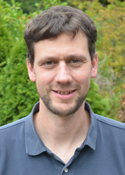
To recognize the professional promise of an early-career investigator
Jakob von Moltke, Ph.D., Assistant Professor, Univ. of Washington
Chambers-Thermo Fisher Scientific Memorial Award
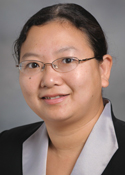
To advance the career of an early-career scientist who attends the AAI annual meeting and presents an outstanding abstract specifically in the area of cancer biology
Weiyi Peng, M.D., Ph.D., Assistant Professor, Univ. of Texas MD Anderson Cancer Ctr.
Lefrançois-BioLegend Memorial Award
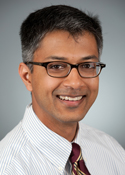
To advance the career of a trainee who attends the AAI annual meeting and presents an outstanding abstract specifically in the area of mucosal immunology
Neil Surana, M.D., Ph.D., Postdoctoral Fellow, Boston Children’s Hosp.
AAI-Thermo Fisher Trainee Achievement Awards
To recognize promising trainees in the field of immunology
Munir Akkaya, M.D., D.Phil., Postdoctoral Fellow, NIAID, NIH
Yuefeng Huang, Ph.D., Postdoctoral Fellow, NIAID, NIH
Jessica Kotov, Graduate Student, Univ. of Minnesota
Stephen Mok, Ph.D., Postdoctoral Fellow, Univ. of Texas MD Anderson Cancer Ctr.
Spencer C. Wei, Ph.D., Postdoctoral Fellow, Univ. of Texas MD Anderson Cancer Ctr.
Qifan Zhu, Graduate Student, Univ. of Tennessee Hlth. Sci. Ctr., St. Jude Children’s Res. Hosp.
Acknowledgments
- AAI Early Career Faculty Travel Grants
- AAI Laboratory Travel Grants
- FASEB DREAM Mentored Poster/Platform (Oral) Presenter Travel Awards
Sponsored by FASEB Diversity Resource Program under a grant from NIGMS, NIH [FASEB MARC Program: T36-GM008637-21 NCE] - AAI Undergraduate Faculty Travel Grants
- AAI Trainee Abstract Awards
- AAI Trainee Poster Awards
- AAI Late-Breaking Poster Awards
Block Symposia & Poster Sessions
Abstracts of unpublished, original research are invited to be submitted for presentation at the meeting during Poster Sessions and Block Symposia (oral presentations of poster data.) All abstracts are reviewed by committees of experts in their respective areas and scheduled for presentation. Outstanding abstracts have been selected for oral presentation in Block Symposia.
View IMMUNOLOGY 2018™ Block Symposia Schedule
All abstracts – including those selected for Block Symposia – are scheduled for presentation in Poster Sessions. This is perhaps the most dynamic aspect of the AAI annual meetings. Take part in face-to-face discussions with abstract authors and learn about their most recent, unpublished research. Poster Sessions will be held daily (unopposed by any other session) in the Exhibit Hall from 2:30 PM – 3:45 PM. Almost 1,800 authors will be present at IMMUNOLOGY 2018™ to discuss their most recent work, network with colleagues, and find the latest developments in their field.
Exhibit Hall & Exhibitor Workshops
Be sure to take advantage of the knowledge-building opportunities presented in Exhibitor Workshops. Located on the Exhibit Floor, these workshops explore companies’ latest technologies, products, and services through demonstrations and discussions.
Workshops are planned and conducted by exhibitors; the listing of these workshops does not constitute endorsement of any products or services by AAI.
Click here to view Schedule of Exhibitor Workshops
While you are in the Hall, visit the AAI booth in the Exhibit Hall to learn about exciting new AAI programs supporting your professional life! During the Poster Hour each day, you’ll be able to meet with AAI members as well as staff to help you explore new opportunities for career advancement and service.
AAI Booth Activities
Here’s what is featured each day:
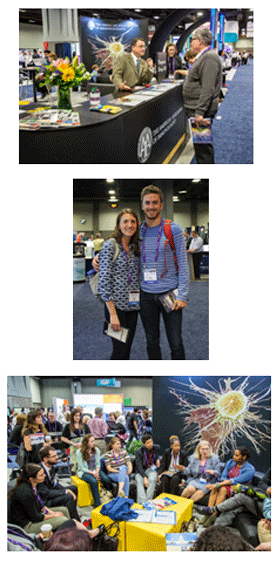 Saturday, May 5
Saturday, May 5
2:30 PM – 3:45 PM
- Meet the Editors-in-Chief of ImmunoHorizons: Leslie J. Berg and Michael S. Krangel
- Meet AAI Minority Affairs Committee (MAC) Members to learn about MAC activities
Sunday, May 6
2:30 PM – 3:45 PM
- Meet the Editors-in-Chief of The Journal of Immunology: Pamela J. Fink (current) and Eugene M. Oltz (incoming)
- Meet the AAI Public Policy Fellows and discover why YOU should be our next Fellow!
Monday, May 7
2:30 PM – 3:45 PM
- Learn about the AAI Career Advisory Board (CAB) from Laura A. Solt, Chair, AAI Committee on the Status of Women
- Meet the AAI Public Policy Fellows and discover why YOU should be our next Fellow!
Check at the booth for additional information about these and the many other AAI programs. At all times, AAI staff will be present to identify the many benefits of membership.
While there, travel the AAI Timeline, depicting important developments for AAI and immunology, science and technology, and U.S. and world history from 1913 to 2017.
